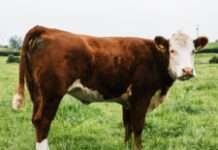MANHATTAN, Kan. – A little less than six months ago, in the early days of stay-at-home orders due to the COVID-19 pandemic, Kansans responding to a survey from the state’s extension service said they needed a brush-up on cooking skills.
Lisa Martin and several of her colleagues on a Kansas State University team focusing on nutrition, food safety and health listened.
“What we heard was that people wanted help with preparing meals, eating well on a budget and improving their cooking skills because they were spending more time at home,” said Martin, an extension agent in Shawnee County.
The response is a seven-part series now available through the K-State Research and Extension bookstore, listed under the headings ‘Cooking Basics’ and ‘The Well-Stocked Kitchen.’
The full series includes:
- Cooking Basics: Getting Started. Simple meal planning and choosing a recipe that suits the family’s needs.
- The Well-Stocked Kitchen: Pantry and Non-Refrigerated Foods. Shelf stable ingredients to have one hand with advice about healthier choices.
- The Well-Stocked Kitchen: Refrigerated and Frozen Foods. Cold and frozen ingredients and suggestions for healthier choices.
- Cooking Basics: Measuring Tools and How to Use Them. A review of ingredient equivalents and how to measure dry and wet ingredients.
- Cooking Basics: Basic Cooking Terms. Definitions of cooking terms, such as what it means to chop or dice.
- Cooking Basics: Making a Meal from What’s On Hand. A guide on using ingredients you have on hand and turning them into a casserole, soup, stir fry, salad or skillet meal.
- Cooking Basics: Reducing a Recipe. To avoid food waste when cooking for smaller groups, this publication has tips on what recipes can be reduced, a worksheet for the cooking math, safe food temperatures and substitutions for utensils you may not have in your kitchen.
“Our goal for this series was to provide something that could be easily used by all populations, such as new cooks, youth learning basic skills, cooks on a budget and people needing to brush up on cooking skills,” Martin said.
Martin, who works with the federally-supported Expanded Food, Nutrition and Education Program, said the publications work nicely as a workbook kept in the home kitchen, or used to teach basic cooking classes.
The publications are available for free online, or can be ordered by calling the K-State Research and Extension bookstore at 785-532-5830.
FOR PRINT PUBLICATIONS: Links used in this story
K-State Research and Extension bookstore, https://bookstore.ksre.ksu.edu
Cooking Basics: Getting Started, https://bookstore.ksre.ksu.edu/pubs/MF3543.pdf
The Well-Stocked Kitchen: Pantry and Non-Refrigerated Foods, https://bookstore.ksre.ksu.edu/pubs/MF3516.pdf
The Well-Stocked Kitchen: Refrigerated and Frozen Foods, https://bookstore.ksre.ksu.edu/pubs/MF3517.pdf
Cooking Basics: Measuring Tools and How to Use Them, https://bookstore.ksre.ksu.edu/pubs/MF3518.pdf
Cooking Basics: Basic Cooking Terms, https://bookstore.ksre.ksu.edu/pubs/MF3533.pdf
Cooking Basics: Making a Meal from What’s On Hand, https://bookstore.ksre.ksu.edu/pubs/MF3534.pdf
Cooking Basics: Reducing a Recipe, https://bookstore.ksre.ksu.edu/pubs/MF3531.pdf
Expanded Food, Nutrition and Education Program (EFNEP), https://nifa.usda.gov/program/expanded-food-and-nutrition-education-program-efnep
K‑State Research and Extension is a short name for the Kansas State University Agricultural Experiment Station and Cooperative Extension Service, a program designed to generate and distribute useful knowledge for the well‑being of Kansans. Supported by county, state, federal and private funds, the program has county extension offices, experiment fields, area extension offices and regional research centers statewide. Its headquarters is on the K‑State campus in Manhattan. For more information, visit www.ksre.ksu.edu. K-State Research and Extension is an equal opportunity provider and employer.
Story by:
Pat Melgares
785-532-1160
For more information:
Lisa Martin
785-232-0062, ext. 119




